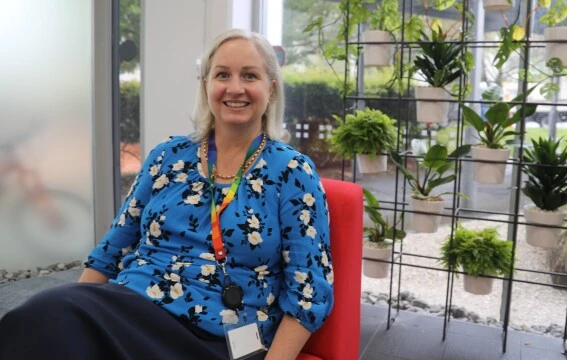IHL Moot – fostering the next generation of law leaders
23 November 2022


While Jane Derbyshire has only been in her new role as General Manager – Organisational Services of New Zealand Red Cross for a few months, she is no stranger to the organisation. For nearly a decade, Jane has been a judge of the International Humanitarian Law (IHL) Moot competition, which brings aspiring lawyers from around the country together to debate complex issues with real world implications.
What is the IHL Moot?
The simplest way to describe the IHL Moot? The trial is not real, but the situations and scenarios used are from the real world. In 2019 the moot had a mock trial with alleged war crimes, including attacks that intentionally caused injury or loss of life to civilians.
Jane says the competition provides opportunities for budding legal practitioners to connect, learn and grow.
“It is a chance for people interested in IHL, who are studying at university, to come together to deal with a complex case,” Jane explains. “It deals with real world challenges. They can practice their arguments and compete with like-minded students.”
A lawyer herself, the 2022 competition will be the ninth time Jane has been a judge in the preliminary rounds. She first joined the moot following a request to the New Zealand Defence Force, where she was working as an Army Legal Officer.
While not a participant herself during her time at law school, Jane says she is consistently impressed with the students and the depth of their arguments, especially those from law schools without an IHL programme.
“The part I really enjoy is that I love speaking with these passionate, enthusiastic people,” Jane says. “I love sharing experiences and opportunities with them.”
How does it work?
The IHL Moot has a preliminary round and a final. Preliminary rounds are supervised by a group of judges, including Jane, while the final takes place at a different venue – this year the Old High Court in Wellington.
“We come together in the morning for a central briefing. We do not know where the students are from – that is kept secret from the judges, to keep the judges free from any appearance of bias and to focus on the quality of the legal arguments they hear,” Jane explains.
“Teams are named Team A, B, C or D, and so on. and they are allocated to either the prosecution or defence, before we hold preliminary judging.”
Depending on the number of teams in any given year, a set amount of time is given for the teams to compete against each other. At the end of the day, a top two will be decided to battle it out in the final.
“For the final, we flip a coin to see who will be prosecution or defence, and a winner is decided at the end,” Jane says. “After the final, there is a prizegiving that is often hosted by the Swiss Ambassador. There is a prize for the winning team and one for best speaker. The winners then have the opportunity to go to the regional IHL mooting competition in Hong Kong.”
Why is the IHL Moot important?
Jane says the moot is important as it shines a spotlight on very real issues facing the world today, including alleged war crimes.
“It’s a real-world challenge that we need to be aware of – discussing and advocating for the laws of war,” Jane says. “Another part is it is a really fantastic opportunity to bring people together who are passionate about this area of law and show future career opportunities. We—the judges—have all worked in different areas of practice that these people might be interested in and we have made connections that have helped shape these career paths.”
Jane says the best way to learn more about International Humanitarian Law is to come and see the moot for yourself.
“We are really keen for people to come along and observe. I think it is a really hard thing to do but it really hones your legal skills when you learn to refine your argument on the spot. Regardless of whether you are going to study International Humanitarian Law, come along and watch!”
More information
- Come along and observe one of the most challenging student trials on war crimes – all welcome. Arguments last about an hour and 15 minutes.
Where: Old High Court in Wellington
When: Saturday 3 December 2022, 4pm. - We have information available about the moot problems, rules, and entry criteria.
Competition information
